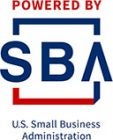Being a small business owner comes with an endless number of questions about what you should and shouldn’t be doing. If those questions include: “Should I be on LinkedIn?” and “Should my business be on LinkedIn?” then you’re asking great questions. And we would answer: YES!
Before diving into why you and your small business should be on LinkedIn, let’s review what LinkedIn is. LinkedIn is a professional social site that allows you and your business to connect with users of all types, just like attending a networking meeting or a workshop. It is a type of social media like Facebook, but more career-oriented than lifestyle-oriented. LinkedIn is a place to make connections, brand yourself and your business, expand your reach and so much more.
Let’s dig into how having a personal page and a business page can support your small business goals, and share how to get started.
Why you should have a personal LinkedIn profile
Having a personal profile on LinkedIn allows you to connect personally with colleagues, industry professionals, potential business partners, employees, and others. It lets you control the image and messaging of your “career self” and put your best foot forward. Why is this important? Because you represent your business just as your business can represent you. Reaching out and connecting with people as an individual (rather than as your business) will expand the reach of your business and deepen the personal connections critical for entrepreneurial success.
Additionally, being on LinkedIn can help you stay up to date on industry news that affects your business and related businesses. Staying on top of coming changes will help you get ahead of potential threats or opportunities coming into your space. LinkedIn also helps you keep current on what is happening with your connections and their businesses, which again goes back to forming and deepening business relationships.
There are endless opportunities to be uncovered with a complete and active LinkedIn profile. Including the above, here are our top eight reasons why you should be on LinkedIn:
- Network for business opportunities and expansion
- Allow business professionals to easily find out more about who you are
- Promote yourself and your brand as you want to be seen
- Establish yourself as a thought leader
- Generate leads via networking
- Expand your network as you reach beyond your 1st-degree connections
- Stay up to date on news related to your business and industry
- Join industry-related groups for support and advice
Why Your Small Business Should have a LinkedIn profile
Many of the benefits of being on LinkedIn with a personal page carry over to having a business page. But because LinkedIn is primarily used by professionals, for professional or career connections, that makes it an even more powerful platform for networking, building your business, and influencing actual or potential business partners. Did you know that 74.1% of LinkedIn users use the platform to research people and companies? Having a robust business profile will allow you to control the message that your business sends out, and ensure that any calls to action (CTAs) clearly address your target audience.
It’s important to note that LinkedIn is also being used by your competition. 94% of B2B marketers say LinkedIn is the #1 channel they use to distribute content. So, if your competition is using LinkedIn to get in front of users, neglecting that space could be a big missed opportunity. LinkedIn page updates are a great way to promote products and business-oriented articles to users who are already interested in learning more. Promoting your products or services, and positioning your company correctly, can drive strong lead generation for your B2B business. According to Foundation Inc, a content development specialist, 79% of B2B marketers see LinkedIn as a good source of generating leads and 59% of B2B marketers say LinkedIn generates leads for their business.
In short, your LinkedIn business profile can:
- Position your business as an industry leader by allowing you to publish to the platform and share relevant, timely updates. LinkedIn is the #1 channel to distribute content for B2B businesses.
- Generate quality leads.
- Attract top talent.
- Showcase and perpetuate brand-aligned messaging.
- Give you prominence alongside, or ahead of, your competition.
- Expand your business’s reach to your target market.
B2B vs. B2C businesses
While there’s a strong argument for all small businesses to have a LinkedIn profile, B2B and B2C business may each have different objectives and take different tactics on the platform. At heart, LinkedIn is primarily seen as a platform for B2B businesses. But just because the platform lends itself to streamlined B2B marketing doesn’t mean that B2C companies won’t benefit from investing there.
LinkedIn has over 500 million members, and while they use the site primarily for professional reasons, they may still be interested in learning about the company behind the products and services they buy and use. At the end of the day, all users are still consumers.
Need inspiration? Check out these five B2C companies that are killing it with content on LinkedIn.
Tip to Getting Started on LinkedIn
If starting on LinkedIn feels overwhelming, set aside some time to simply explore the platform first. Start by searching for businesses and colleagues that you know, to see how they have set up their profiles and what types of updates they share. Once you’re ready to jump in, here are some ideas for getting started.
Personal Profile
- Sculpt your profile to put your best foot forward while still getting your personality across.
- Need resources? Check out this great guide by Learn How To Become and these great profile examples picked out by LinkedIn.
- Build your network by connecting with colleagues from your industry and related industries, industry professionals and thought leaders, and mentors.
- Begin to post updates about your industry and business.
- Join relevant LinkedIn groups for advice and support.
Business Profile
- Claim and set up your business page. For assistance doing this, refer to LinkedIn’s help center.
- Browse LinkedIn’s best practices for business pages to fully optimize your profile.
- Craft messaging that includes keywords and calls to action that speak to the LinkedIn audience you’re targeting.
- Encourage your employees to connect with your business’s profile and interact with it regularly to build credibility and expand the reach of the page organically.
- Plan and implement a strategy for promoting your business on LinkedIn, and outline the types of updates you want to post.
LinkedIn is a powerful tool for networking and marketing. Give your business a leg up by getting in on the action.
Check out our blog home page for more tips, tricks, tools, and advice for starting or expanding your small businesses.



